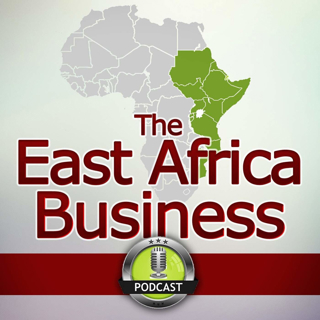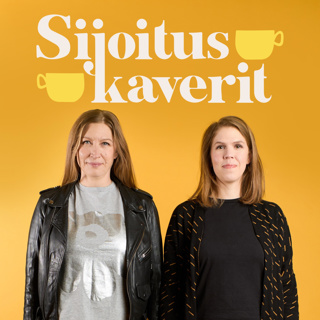
Selling cakes (and training cake makers), with Grace Murugi from Cakes.co.ke
If you consider businesses that bring people joy, for me at least, cake is one of them. It’s also a product which is being bought by the emerging middle class especially in Kenya, with custom made ones being sold for up to $180. Grace not only makes these cakes, but teaches others how to with her Cake Academy. We discuss the customers who are buying cakes, how she taught her team to run the business when she went on maternity leave and innovations in the cake industry. The interview took place outside her shop, and so there is a bit of background noise and not all of the answers are fully audible. READ MORE AT:https://theeastafricabusinesspodcast.com/2016/12/28/cakes-selling-everyday-treats-for-aspirational-kenyans-with-grace-murugi-from-cakes-co-ke/
28 Joulu 201632min

The CEO of iHub gives an overview of the East Africa tech ecosystem, with Kamal Bhattacharya
One of the first places I had earmarked for learning about business in Kenya was the iHub. From reading up on business in East Africa it was always mentioned as the heart of the tech scenenot only in Kenya but also of the whole region. In fact, when rumours leaked that I would be interviewing Kamal for this podcast, Facebook CEO Mark Zuckerberg made sure to drop in for a visit when he was in Africa in late July. Kamal and I discuss the government’s role in fostering scalable businesses across East Africa, what makes a good pitch and the areas of growth that he sees in the Kenyan economy. It’s a very interesting conversation that we have, and I hope you enjoy READ MORE AT:https://theeastafricabusinesspodcast.com/2016/12/21/ihub-an-overview-of-the-east-africa-entreprenurial-ecosystem-with-kamal-bhattacharya-ceo-of-ihub/
21 Joulu 201635min

The effusive Dr Suudi gives us a taste of his Ugandan radio adverts
Coming from the UK, one of the biggest differences in East Africa has been how products are marketed. In the co-working space I was at in London we would talk about Google Ad campaigns and reaching users online through content marketing. Here though, the radio is a dominant form of advertising. In this episode I talk with Suudi who runs Wave Records. We discuss his extensive experience in the radio industry, why old car radios can only play on restricted frequency and listen to some of his catchy jingles, including a slightly… interesting one about a Ugandan girl getting a Chinese boyfriend (at around 18 minutes) We were in his recording studio and so there might be a bit of activity/ phone interference going on in the background and it gets a bit echo-y at the end. Sorry about that. Hopefully it won’t detract from one of the… most unique interviews I’ve had. READ MORE AT:https://theeastafricabusinesspodcast.com/2016/12/14/radio-adverts-marketing-on-uganda-radio-stations-with-dr-suudi-from-wave-records/
14 Joulu 201632min

A history of surveying and market research in Kenya with Boniface Ngahu from SBO Research
Understanding the consumer is an important part of a lot of businesses. Boniface is a director at SBO Research, a Market Research company that has been in business in Kenya since the mid-nineties. After finding them on Google I went in for a chat and we spoke about his perspective of the market. We discuss the change in political conditions that brought about the growth in market research industry, how drones are assisting researchers and whether an insurance policy will pay out if an eagle eats a chicken. READ MORE AT:https://theeastafricabusinesspodcast.com/2016/12/07/market-research-a-history-of-surveying-and-gathering-insights-in-kenya-with-boniface-ngahu-from-sbo-research/
7 Joulu 201632min

Supporting Ugandan small holder farmers with affordable services, with Peter Nyeko from Reparle
During my travels in East Africa, time and again people would point to the low prices that farmers receive as the main blocker to development. Low prices come from not being able to store produce, nor do the basic milling to give it more value. It’s difficult though, as much of the basic infrastructure such as transport, power and facilities are absent in the many rural areas that exist in the region. Peter Nyeko set up Reparle as a marriage of three organisations to solve exactly this. We talk about the environment that many rural farmers are living, how Reparle learnt about the conditions they worked in and the considerations with planning out a large scale project like this. We also talk a fair bit about biomass, and so if you’re interested in learning more about this solar alternative to clean energy creation, look out for the Clean Cooking episode I did with Ziwa from Green Bioenergy. READ MORE AT:https://theeastafricabusinesspodcast.com/2016/11/30/farmer-support-providing-small-holder-farmers-with-affordable-value-adding-services-with-peter-nyeko-of-reparle/
30 Marras 201632min

Why biomass charcoal cooking stoves are saving lives, with Ziwa Hillington from Green Bioenergy
Cooking is an everyday activity that most people engage in. In places where you don’t have gas, charcoal is often used to fire up a stove. Whilst people have been doing this for years, it is not very environmentally friendly, and it generates smoke in often confined areas of a home. Green Bioenergy is a social enterprise all about creating a clean cooking environment. Their two products are an improved cooking stove and smokeless charcoal briquettes. Ziwa and I discuss how they sell briquettes through rural agents, how they keep the complete supply chain produced in Uganda, and the prospects for taking this approach internationally. We conducted the interview in the garden of the Green Bioenergy office/ house and so there might be the odd bird tweeting in the background. Either way, I hope this doesn’t distract you from the interesting chat that we have. READ MORE AT:https://theeastafricabusinesspodcast.com/2016/11/30/clean-cooking-using-renewable-biomass-charcoal-to-create-a-sustainable-smokeless-kitchen-with-ziwa-hillington-of-green-bioenergy/
30 Marras 201634min

Coworking Space: giving entrepreneurs in Uganda a collaborative place to work
When people start on a business idea, they typically go and work out of a co-working space so they can be amongst like-minded individuals, and also get support in starting their venture. The first of these hubs in Uganda was called Hive Colab, and I speak with Gilbert, the programme manager about his view of the interesting businesses coming out of the space. He really has his finger on the pulse of innovative companies being created in Uganda, and we speak about plenty, including how and why Hive Colab are looking to attract the top university graduates in the country, the exorbitant cost of internet access, and how he sees opportunities for the government to help promote what they are doing. READ MORE AT:https://theeastafricabusinesspodcast.com/2016/11/23/coworking-space-giving-entrepreneurs-in-uganda-a-collaborative-place-to-work-with-gilbert-arinda-of-hive-colab/
23 Marras 201640min

Why Ugandans are demanding "masculine" motorbikes, with Pankaj Tiwari from Miracle Motors
Arriving in Kampala (the capital city of Uganda) one of the first thing people notice are how many motorbikes there are. It’s the de facto mode of transport for getting taxied around the city, in a place where car congestion is heavy. Near where I was staying was a showroom for Miracle Motors, a subsidiary of the larger Indian conglomerate Mahindra Group. After walking in, the head of the office Pankaj agreed to an interview, and we spoke about the many customer types of motorbikes, considerations of importing unfinished goods, and the evolution of the personal transport market in the region. READ MORE AT:https://theeastafricabusinesspodcast.com/2016/11/16/motorbikes-the-extensive-market-for-ugandan-two-wheelers-with-pankaj-tiwari-from-mir
16 Marras 201632min





















